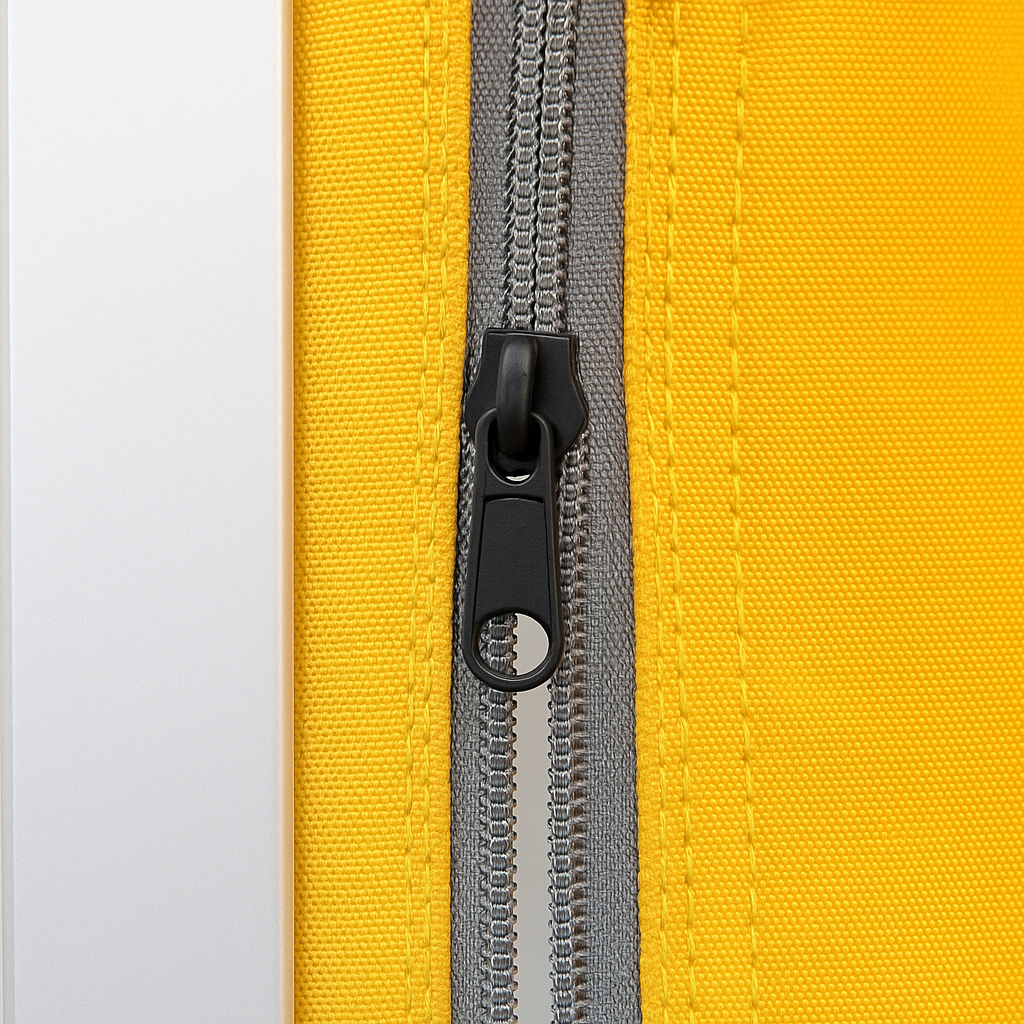In today’s design and manufacturing world, sustainability is no longer optional; it has become a core principle of innovation. Apparel brands, outdoor gear designers, automotive suppliers, and industrial manufacturers are all under pressure to rethink how products are sourced, built, and used.
While fabrics, dyes, and packaging often dominate sustainability discussions, one small but vital component is often overlooked: the zipper.
Zippers are more than just closures. They are the linchpin of product functionality. A failed zipper can compromise an entire product—whether that’s a jacket, a tent, or a medical bag. If the zipper breaks, the item is often discarded, even if the fabric remains intact. That’s where the role of sustainable and durable zippers becomes critical.
At LenZip, a U.S.-owned zipper manufacturer since 1946, we understand this balance. Our mission is to provide OEMs, designers, and manufacturers with zippers that are not only engineered for performance but also aligned with today’s eco-conscious goals. Choosing the right zipper partner is no longer just a technical decision—it’s a sustainability strategy.
Why Sustainable Zippers Matter
The demand for sustainable products is fueled by environmental awareness, consumer expectations, and regulatory pressure. The fashion and textile industry alone contributes nearly 10% of global carbon emissions, and even small trims like zippers contribute to that footprint.
Consumers increasingly expect brands to provide transparency about materials, while regulations such as EU eco-design directives and U.S. extended producer responsibility (EPR) proposals push manufacturers toward recyclable and bio-based components.
Equally important is durability. A zipper that fails can shorten a product’s lifespan dramatically, forcing consumers to discard garments, luggage, or gear that could otherwise serve for years. In this sense, durability is sustainability—every zipper that lasts longer reduces waste and resource consumption.
Eco-Friendly Zipper Materials
The zipper industry has made significant strides in developing eco-conscious materials:
- Recycled Polyester (rPET): Made from PET bottles and textiles, reducing reliance on virgin petroleum.
- Bio-Based Polyester: Derived from renewable resources like sugarcane, cutting fossil fuel usage.
- Organic Cotton Tapes: Natural fiber alternatives with reduced pesticide impact.
- Recycled Nylon: Used widely in outdoor gear, lowering chemical and energy demand.
Each option carries trade-offs in terms of scalability, recyclability, and durability. However, with proper engineering, they enable products that are both eco-friendly and long-lasting. To explore performance differences, see LenZip’s polypropylene vs. polyester guide.

Durability = Sustainability
When it comes to sustainability, materials alone aren’t enough. Longevity matters just as much. A technical jacket made with organic cotton or recycled fabric still ends up in landfills if its zipper breaks after one season. By investing in durable zippers, manufacturers extend product lifespans and reduce replacement cycles.
This principle applies across industries. Outdoor gear needs zippers that resist moisture and abrasion; automotive interiors rely on closures that function flawlessly for years; and industrial uniforms require zippers that withstand chemicals and frequent laundering.
To support OEMs in choosing the right specifications, LenZip offers a detailed Zipper Gauge & Chain Size Chart that helps manufacturers align zipper durability with real-world use.
Industry Innovations and Trends
The zipper industry is adapting quickly to global sustainability goals. One major innovation is circular recycling systems, which design zippers for disassembly and full recyclability. Dyeing methods have also advanced, cutting water use and chemical runoff in zipper tape production.
Another important shift is the move to low-toxicity finishes, reducing reliance on heavy metals in plating and coatings. Finally, the growth of domestic zipper manufacturing—as practiced by LenZip—lowers shipping emissions and shortens supply chains, creating both environmental and operational benefits.
How Manufacturers Can Choose Eco-Friendly Zippers
Designing eco-conscious products requires balancing ecological impact and durability. Certifications such as OEKO-TEX® and the Global Recycled Standard (GRS) verify safety and recycled content. But manufacturers must also consider the composition of tapes, teeth, and finishes to ensure both sustainability and performance.
Custom engineering plays a crucial role. By collaborating with specialists like LenZip, brands can specify materials and finishes that meet both sustainability benchmarks and industry performance standards. For a deeper look at options, explore zipper materials and finishes.
Why U.S. Manufacturing Supports Sustainability
Sourcing zippers from a U.S.-based manufacturer offers unique environmental and operational advantages:
- Reduced Freight Emissions: Domestic sourcing cuts long-distance shipping impact.
- Local Compliance: U.S. manufacturing adheres to strict environmental and labor standards.
- Reliable Supply Chains: Shorter lead times and better quality control minimize waste.
- Community Impact: Choosing LenZip’s products supports American jobs and regional economic resilience.
In today’s unpredictable global marketplace, working with a local supplier is both a sustainable and strategic decision.

External Authority Sources
For manufacturers seeking to align with recognized sustainability frameworks:
- OEKO-TEX® – Global certification ensuring textiles are free from harmful substances.
- Textile Exchange – Nonprofit advancing sustainable fibers and materials worldwide.
Conclusion
Sustainability in zippers is about materials plus durability. Innovations such as recycled polyester, bio-based polyester, and recycled nylon reduce environmental impact, while robust engineering ensures zippers last—extending the life of the products they serve.
At LenZip, we’ve been manufacturing zippers in the U.S. for nearly 80 years. Our focus on custom-engineered, durable closures helps brands achieve their sustainability goals without compromising on quality or performance.
Whether you’re developing apparel, outdoor gear, or industrial equipment, LenZip is your partner in sustainable product development. Explore our sustainable zipper options or request a quote today.
